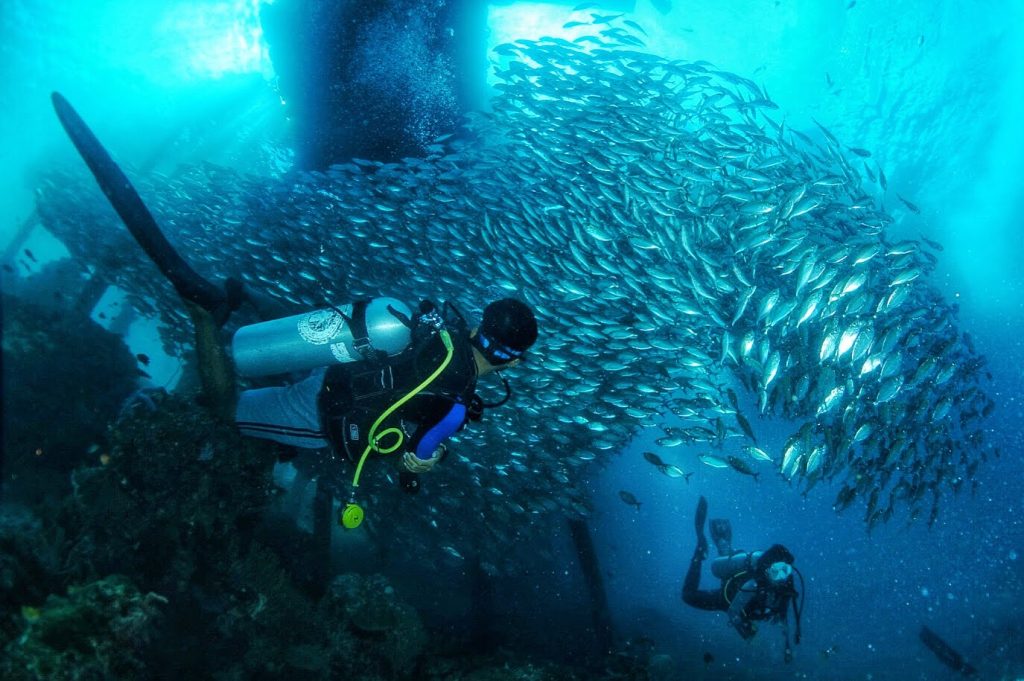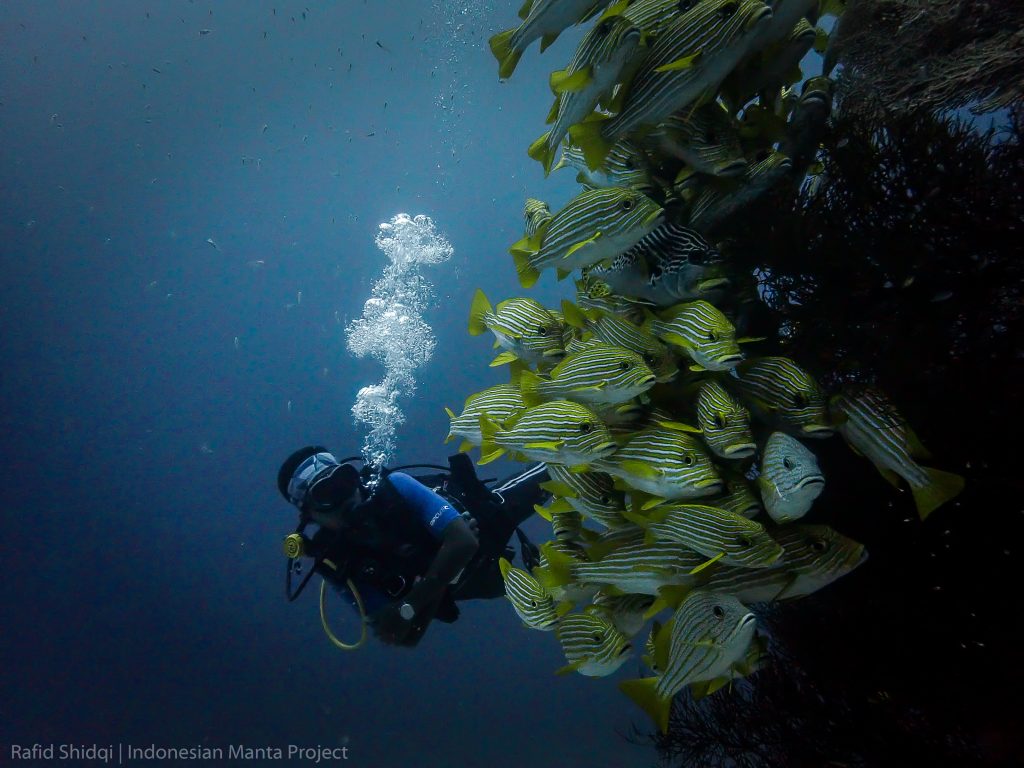BY RAFID A. SHIDQI, SENIOR EXECUTIVE, ASIA PHILANTHROPY CIRCLE

The Coral Triangle Region in Southeast Asia is home to some of the most diverse marine life on the planet. Comprising countries such as Indonesia, the Philippines, Malaysia, Timor Leste, and several Pacific Island nations, the region boasts over 70% of the world’s coral reef species and 37% of all coral reef fish. Its marine resources are crucial to the survival of over 120 million people who depend on them for food, livelihoods, and protection from storms.
Despite its importance, the Coral Triangle Region faces threats from unsustainable practices, such as destructive fishing, pollution, and climate change. Rising temperatures have caused severe mass coral bleaching and mortality events, making the impact of climate change increasingly visible.
As an Indonesian, I have spent more than 6 years of my career prior to joining APC working to protect the rich marine biodiversity in the Coral Triangle, particularly in Eastern Indonesia. My experiences managing marine protected areas, promoting sustainable marine tourism, and finding alternative sustainable livelihoods for coastal communities have shown me the complexity of these issues, with social, economic, and political factors all playing a role. These experiences inspired me to shift to a career in philanthropy, in which I am thrilled to be part of Asia Philanthropy Circle. Having consulted for various organisations, including the United Nations, Asian Development Bank, and other NGOs, I understand the importance of funding to solve the pressing ocean challenges we face today.
However, the UN Ocean Conference held in Lisbon last year in 2022 revealed that the ocean remains one of the most underfunded issues among the Sustainable Development Goals, with only 0.01% of all SDG funding from development finance since 2019, and 0.56% of all philanthropic funding since 2016. The ocean within the Coral Triangle Region is an essential ally in combating climate change, notably in the adaptation sectors and the sector requires much more philanthropic support than it receives today to continue delivering the services needed for coastal populations.

While increasing the amount of funding for ocean and climate is essential, it is also worth noting that we must ensure that the funding is accessible and delivered effectively to some of the most vulnerable communities in Southeast Asia—especially those who feel the most impact on climate and rely heavily on ocean resources. For example, In the case of Indonesia or the Philippines, the spread-out nature of their islands means that climate issues can sometimes be underestimated, due to their remoteness, limited resources and human capacity. The lack of availability of information also inhibits organisations and communities from accessing the funds required for them to adapt to local challenges.
Furthermore, climate topics may also be overlooked because they compete with other development priorities these islands face, such as the urgency to alleviate poverty, health and well-being, education, or food security. Climate may not be seen as a perceptible issue because institutions fail to notice the intersectionality of climate with these development challenges.
The use of international funding then has to consider local aspects and adapt its metrics to ensure they capture the local realities. Funding should be informed by extensive local knowledge, involve local communities, encourage ownership, and nurture cross-sectoral collaborations to help grassroots organisations learn from each other and address the issues effectively. It is also increasingly paramount to level up the participation of women in any ocean and climate initiatives because their voices have been historically underrepresented, yet they are the most vulnerable to climate change.
Embracing the momentum of World Oceans Day and the urgency for increasing philanthropic support on oceans and climate, APC will be organising an Oceans Day event in June, combining interactive discussions with prominent speakers from organisations across the ocean sector to discuss what philanthropic resources are needed to contend with warming oceans. With this, we hope to encourage APC members and relevant institutions to unite to pay more attention to the big elephant in the room: saving the oceans means saving our climate.
Ultimately, although the issues may seem so immense, I am optimistic that with the increasing number of ultra-high-net-worth families in Asia, there can be a greater prospect to increase support and investments in protecting the oceans. I believe that the future of philanthropy in Asia holds great promise to push for progress, and in filling the gaps needed to accelerate ocean conservation and our climate.
